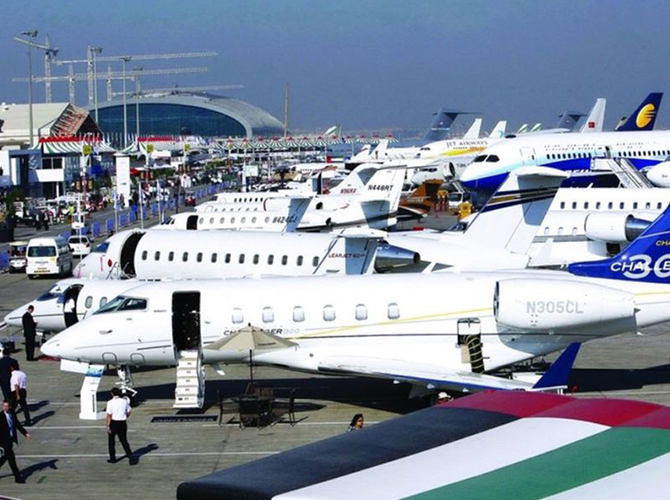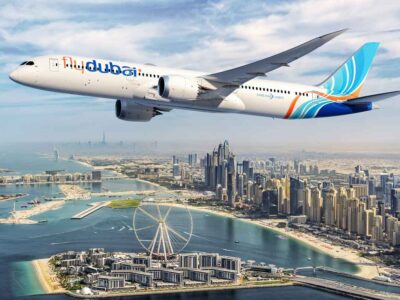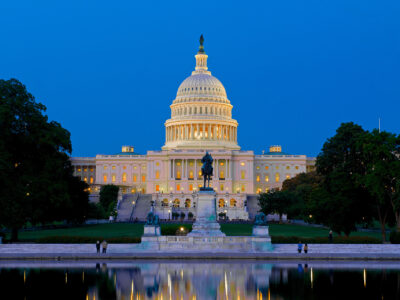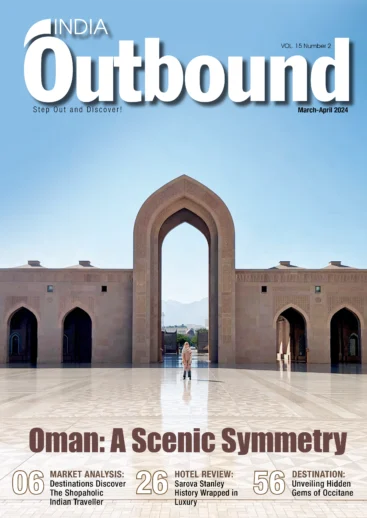
One of the largest orders placed at the Dubai show was by Indigo Partners, which said it had placed an order for 255 additional Airbus A321neo family aircraft for its portfolio of airlines
There were a few signs of a revival in the international aviation industry as most airlines began seeing more of their aircraft up in the air rather than parked at airports, covered with sheets to protect them from natural elements.
The revenues were beginning to shoot up from the abysmal single digit, in terms of percentage of the pre-pandemic levels, and some airlines also managed to turn at least positive cash flows, if not operational profits, after incurring the worst-ever losses recorded individually as well as collectively.
If these were only signs, but without any clarity on whether they were long-term trends or just another blip on the screen, they were confirmed over the past few days as the Dubai Air Show reports a series of orders, large and small, being recorded as individual airlines as well as airline leasing companies turned bullish on their prospects and renewed their fleets.
The orders may yet not compare with those that prevailed at airshows before the pandemic, but the signs are all there and clearly there is a revival in the international airline industry that is here to stay.
For instance, Air Lease Corporation (ALC), an American firm, has signed a letter of intent for over 100 Airbus aircraft with the European plane manufacturer. The company has agreed to buy 25 A220-300s, 55 A321neos, 20 A321XLRs, four A330neos and seven A350Fs from Airbus.
The order, which will be finalised in the coming months, makes the Los Angeles-based ALC one of Airbus’ largest customers and the lessor with the biggest A220 order book. The company, founded in 2010, has so far ordered a total of 496 Airbus aircraft to date.
“This new order announcement is the culmination of many months of hard work and dedication by both organisations to optimise and fine tune the size and scope of this large aircraft transaction in view of the rapidly growing global airline demand to modernise their jet fleets through the ALC leasing medium,” said Steven Udvar-Hazy, executive chairman of Air Lease Corporation.
“After lengthy and detailed consultations with several dozen of our strategic airline customers around the world, we are focusing this comprehensive order on the most desirable and in demand aircraft types, covering the A220, A321neo, A330neo and A350 families. ALC is an international market leader in each of these categories of the most modern Airbus product line-up,” he added.
While ALC may be a large customer, the orders for new planes were being signed by companies of all kinds and sizes. For instance, Tanzania Airlines, the flag carrier of the East African nation, which has a total fleet of just 11 aircraft, announced at the airshow that it was buying a 787-8 Dreamliner, a 767-300 Freighter and two 737 Max jets. The airplanes will be used to expand service from the country to new markets across Africa, Asia and Europe. The deal is worth USD 726 million at list prices of aircraft, though manufacturers are known to give discounts.
“Our flagship 787 Dreamliner is popular with our passengers, providing unrivalled in-flight comfort and ultra-efficiency for our long-haul growth,” said Air Tanzania chief executive, Ladislaus Matindi.
“Adding to our 787 fleet, the introduction of the 737 Max and 767 Freighter will give Air Tanzania exceptional capability and flexibility to meet passenger and cargo demand within Africa and beyond,” he said. Tanzania Airlines will expand its current fleet of 787s, leveraging the new 737s for its regional network and the 767 Freighter to capitalise on burgeoning cargo demand.
“Africa is the third fastest-growing region worldwide for air travel, and Air Tanzania is well-positioned to increase connectivity and expand tourism throughout Tanzania,” said Ihssane Mounir, Boeing senior vice president of commercial sales and marketing.
“We are honoured that Air Tanzania has chosen Boeing for its fleet modernization program by adding an additional 787 and introducing the 737 MAX and the 767 Freighter into its expanding network,” he added.
But one of the largest orders placed at the Dubai show was by Indigo Partners, which said it had placed an order for 255 additional Airbus A321neo family aircraft for its portfolio of airlines. The company owns and operates numerous budget airlines across the world, notably Hungarian Wizz Air, Frontier (United States), Volaris (Mexico) and JetSmart (Chile and Argentina). While Wizz would pick up the largest number of aircraft, 102, Frontier will take 91 and Volaris 39 planes, while JetSmart will take 23 aircraft. In addition to this order, Volaris and JetSMART have also decided to replace their existing 38 A320neo on order books to A321neo.
“This order reaffirms our portfolio airlines’ commitment to consistent growth through the next decade. The Airbus A321neo and A321XLR have industry-leading efficiency, low unit costs and a substantially reduced carbon footprint relative to prior models. With these aircraft, Wizz, Frontier, Volaris and JetSMART will continue to offer low fares, stimulate the markets they serve and improve their industry-leading sustainability profile,” said Bill Franke, managing partner of Indigo Partners, which is a private equity fund, based in Phoenix, Arizona, focused on worldwide investments in air transportation.
Long-term forecasts
Meanwhile, giving a more longer-term perspective, Airbus released its latest demand forecast for the next 20 years. The European company, which has of late replaced Boeing, in terms of number of aircraft on order, at the top of the pile, says that demand for air transport will progressively shift from fleet growth to the accelerated retirement of older, less fuel-efficient aircraft.
Airbus predicts that this shift towards fuel efficiency will lead to a demand for about 39,000 newly built passenger and freighter aircraft. Of these, as many as 15,250 would be replacements for the current fleets operated by airlines across the world.
As a consequence, by 2040 the vast majority of commercial aircraft in operation will be of the latest generation, up from some 13 pc, considerably improving the carbon emissions of commercial aircraft fleets.
The economic benefits of aviation extend beyond the sector, contributing around 4 pc to annual global GDP and sustaining some 90 million jobs worldwide.
Airbus goes on to predict that even though it lost nearly two years of growth due to the Covid-19 period, passenger traffic has demonstrated its resilience and is set to reconnect to an annual growth of 3.9 pc per year, driven by expanding economies and commerce around the globe including tourism.
The middle classes, who are the likeliest to fly, will grow in number by two billion people to 63 pc of the global population. The fastest traffic growth will be in Asia with domestic market in China becoming the largest market in the world.
“As economies and air transport mature, we see demand increasingly driven by replacement rather than growth. Replacement being today’s most significant driver for decarbonisation. The world is expecting more sustainable flying, and this will be made possible in the short-term by the introduction of most modern airplanes,” says Christian Scherer, chief commercial officer and head of Airbus International.





















